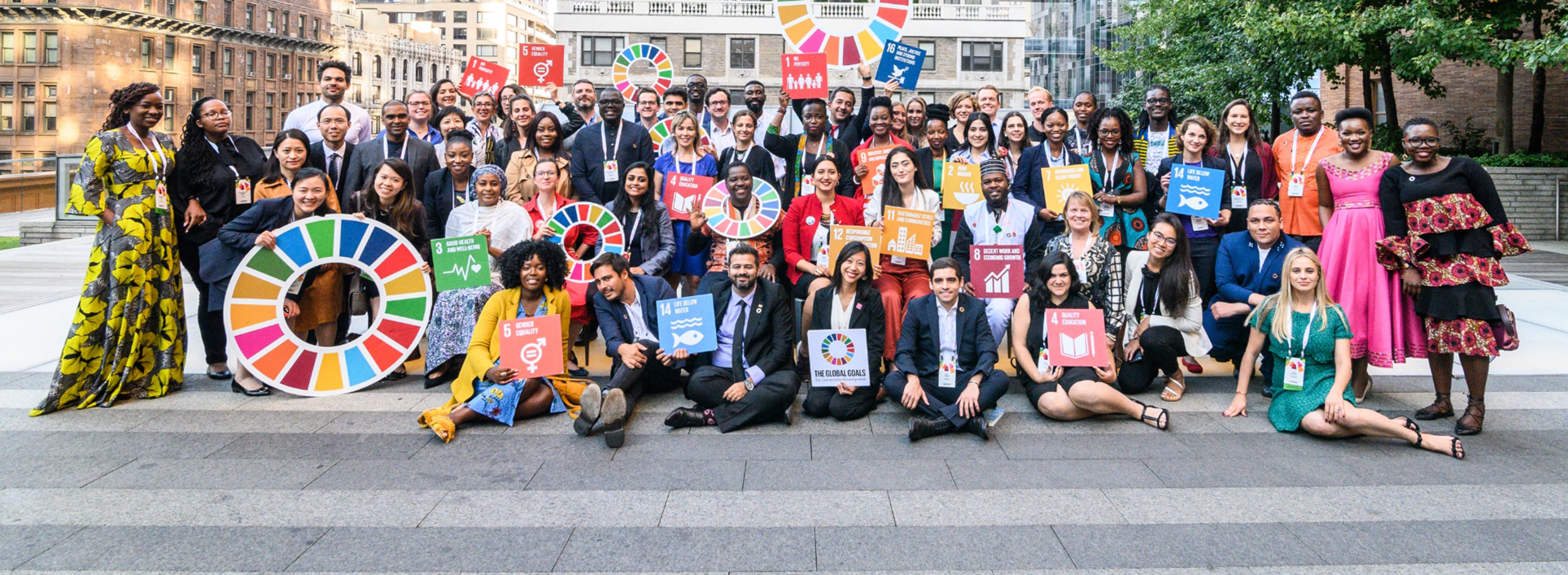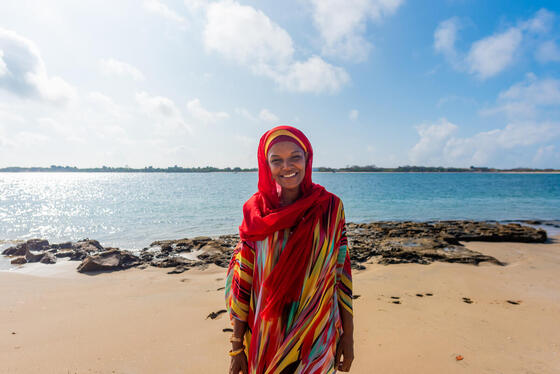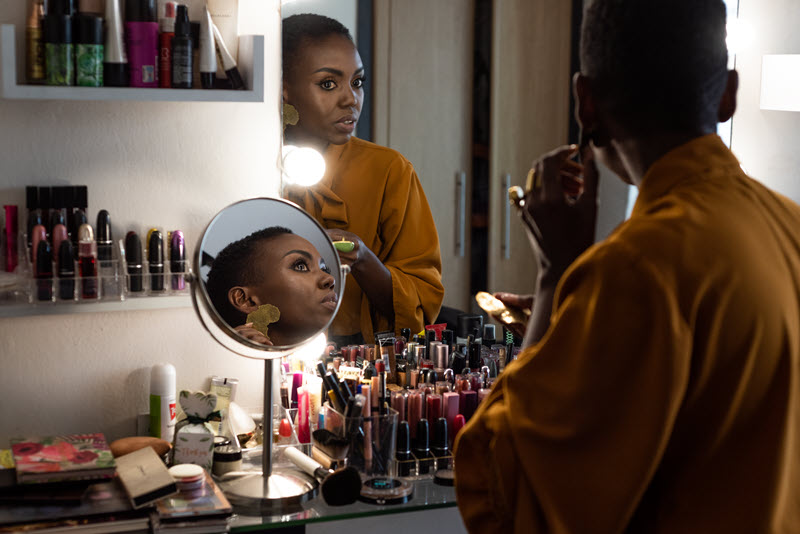
Patricia Kihoro Goalkeeper

Patricia Kihoro: Entertainer, Philosopher, Storyteller
Artist and Content Creator
Kenya
Goal 13: Decent Work and Economic Growth
Patricia: I grew up in Nairobi, Kenya, which is where I live now. I wanted to be a singer, among many other things. I remember making that decision when I was about nine or 10 years old. My mom was a huge influence on my music and the music that I listened to growing up. She bought me this cassette tape of these kids called All God’s Children. It was a choir of kids in the U.S. who came from disadvantaged backgrounds and sang contemporary gospel music. I remember thinking, these kids are amazing. I want to sing just like them. So I told my mom, “I’m going to become a singer.” And my mom said, “Cool.”
Blessing: I’ve always believed that you can reach people through art more than you can through a data point. What are the issues that you are most drawn to elevating on your platforms? And where have you seen art as powerful as a data point?
Patricia: One of the things that I really love about the Global Goals is how they aren’t standalone goals. They’re intertwined. For me, the four I felt super drawn to are Goal 3: Good Health and Well-Being, Goal 4: Quality Education, Goal 5: Gender Equality, and Goal 8: Decent Work and Economic Growth. Over the last two years, my mental health dipped. Going into my 20s and 30s, I struggled with a few things, but I thought, that’s life. Finally, a year ago, I sought out a professional therapist and got my diagnosis of attention-deficit/hyperactivity disorder (ADHD) and generalized anxiety. I had to accept that therapy and medication were important for me to return to some semblance of normalcy. I also felt strongly that the stigma that comes with mental health and wellness is unnecessary. If we are able to understand that brains develop differently, then we can realize that education can’t look one way for everyone. Quality education does not just mean going to a quality school, it means getting educated in a way that is optimal for you and your mind. Girls and women do not get diagnosed with mental health diagnoses as often and as early as boys, so they struggle, when an earlier diagnosis could have changed their life trajectory. So many women are now receiving late diagnoses. Women don’t have as much access to proper medical care, especially Black women, because the tiers of gender and privilege seep into everything. If women don’t have access to medical care, then it means we don’t get a great education. And we’re not able to have equity in the spaces we inhabit or fully explore and actualize who we are in the fields that we choose to be in because of those disadvantages.
Blessing: I don’t think I’ve ever heard anyone so articulately weave together Goals 3, 4, 5, and 8. We need more storytellers like you to illustrate how all of these things are connected on an individual level. Speaking of storytelling, what tips would you give to Goalkeepers who want to grow their platforms on social media?
Patricia: I didn’t come onto these platforms to build numbers. I was an early adopter of social media platforms—from Hi5 to MySpace. It has always been about me sharing what my life is, what I’m experiencing, what I’m learning, what I’m discovering, and who or what I’m loving. Someone once asked, “Why are you so happy all the time?” And I remember thinking, I’m not happy all the time. My life is not perfect. I didn’t want to play a part in putting out a perfect image and somebody on my page thinking, she is what I want to be, and if I’m not like that, then there’s something wrong with me. So I started to share that sometimes I’m not okay. We’re not living to aim for perfection. We’re living here to fully experience this life. In every form: The ups and the downs. Just be yourself, trust that who you are, that’s the sauce. That’s the dopeness.
Blessing: What’s pissing you off and what’s keeping you optimistic?
Patricia: The thing that’s pissing me off is seeing that a lot of what people are doing online is performative. When it comes to the issues that people speak about, you’ll find that some are genuinely coming to talk about it. But there are others who are virtue signaling, and then there are content consumers who ask, “How come you haven’t posted? Why aren’t you talking about this?” I find there’s a lot of pressure. I see the value of awareness and taking a stand by using your platform to speak. But there’s also value in allowing people to take a minute to think about what they want to say, so that they can say it in the most authentic way, because there’s a difference between making an impact and appearing to make an impact. I think there’s room to allow people to find the language to use or amplify those who do, because not everybody has the language.
What’s keeping me optimistic are my friendships and family, the lessons I’m learning, and conversations I’m having. My friends have shown up for me, and that has been the brightest light even if it felt like the darkest time.

Patricia prepares for the improv show “Because You Said So.”
Photo courtesy of Gates Archives/ Mumbi Muturi